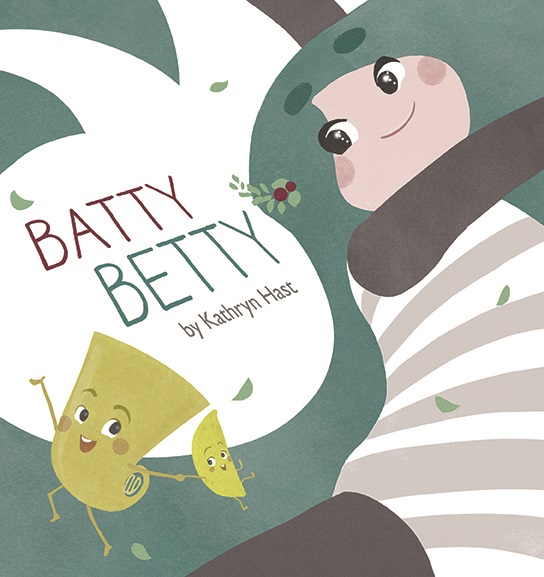Children's Book: Batty Betty by Kathryn HastSeptember 30, 2017 I love finding books to read with my children that encourages kindness and compassion at all times, especially when dealing with others, who may not be so kind. We are all similar yet different and we should celebrate our differences, just like the lovely characters of Batty Betty. This cute story will remind us to be inclusive and allow others to be who they are and to enjoy who we are! Please read below for more info and a Q&A with the author. AND CELEBRATION OF SELF AND OTHERS Batty Betty's storyline is purposefully, lyrical, and delightfully whimsical while also tackling tough subjects. Hast wanted to be sure it was just as fun for both parents and children to read while illuminating ways to approach and tackle real and often difficult scenarios.
Website: www.lujubooks.com Facebook: LuJuBooksLLC Instagram: lujubooks Twitter: @LuJu_Books Q&A with Kathryn Hast1. Batty Betty begins with an odd premise: that a tuba would befriend a banana, who is upset by some beavers, who also bully a giant. How did you come up with the idea, and what does it all mean to you? Yes, it’s a bit bizarre. But in some ways most children’s books are, right? I think one of the cornerstones of childhood is the ability to suspend disbelief, to see past odd anthropomorphization, for example, and find instead empathy via character. I studied magical realism a lot over the course of my MFA, and there’s surely a bridge there, but the story actually began with a drawing my daughter drew in pre-school. The teacher must have asked her what the red scribble was, for she put in quotes at the bottom: “A giant dancing with a basket.” When I saw that, I thought, “Wow! That is imagination at its best.” If Lucille can dream up that from that, then I can take this and make it into something. The first line that popped into my head was, “A giant dancing with a basket/ What they call a basket case”… and I took it from there. I see the book as a reflection of topics like peer pressure, bullying, bravery, and even mental health. 2. Do you think those themes could be a bit heavy for kids? It’s a good question. The book is not for everyone. I created it with a fundamental worldview that books are not just for entertainment. Social scientists and educators have been reporting for years that active learning is what works. By contrast, passive learning is when kids are lectured to by a teacher, when they watch TV… but when you engage and explore concepts actively, the stimulation ensures a richer learning experience. Accordingly--in my view--books can and should lead to conversations. And sometimes those conversations aren’t quick or easy. If it takes a parent and child a few months to get through my little, I feel I will have done my job. 3. Most children’s books have a targeted age group. But you insist that Batty Betty is for all ages. Why is that? While many children’s books adhere strictly to age and/or reading levels, I think there’s something to be said for using playful language, which may or may not be elevated. A reference to Liszt (the composer), for example, is not really for kids, but when you rhyme it was “midst” and provide visual context, kids hear the word and accept the idea. Hopefully, they even ask about it. I truly believe kids are smarter than we think. …And then, yes—it’s always been my hope that adults would enjoy my books, too. How many of us with young kids wish we could read more? How many of us prioritize our kids’ exposure to books over our own? It’s always been my hope that adults can find reflection and meaning in my books. That would be great. blog comments powered by Disqus SIGN UP FOR OUR NEWSLETTER: 

 
© 2017 Mammanatty. All Rights Reserved. |


  |


 About the Author:
About the Author: